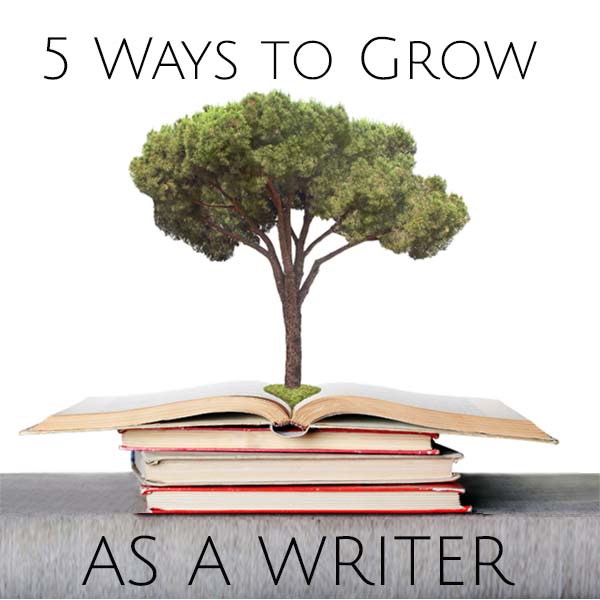“We are all apprentices in a craft where no one ever becomes a master.” —Ernest Hemingway
Do you want to become a better writer in 2015? Whatever you write – articles, devotions, essays, blogs – or in my case, novels – we should always strive to communicate with more clarity, more simplicity, more elegance.
It has long been my practice as a novelist to take stock of my writing skills every year and make a goal to ramp up one area of my writing. Dialogue, Storyworld, Characterization, creating tension, emotional writing, description, streamlining prose, adding in metaphor and symbolism – whatever I feel might be my weak area.
And, even after 10 years of being traditionally published, I still see my writing as swiss cheese – so many holes, so many opportunities to write better.
Being a gal who likes lists and schedules, I like game plans or a strategy to accomplish this. [We’re going to go in-depth on how to employ a strategy in our monthly Open House for writers (it’s FREE! Sign up here!) on Thursday, January 8th. ]
This is a great week to sit down and think through your strategy for upping your wordsmithing game in 2015. And having a strategy and plan is key, because as your year progresses, you’ll read some great books and probably get so involved you will forget that you’re actually supposed to be paying attention to, say, the storyworld.
[I know, I wreck reading and movies, but here’s an idea – read the book, and if you love it, GO BACK with a highlighter and find all the passages that sing (and are in your area of learning for the year.) Deconstruct them and figure out why they work. Write them in your writing inspiration journal (you have one of those, right?)]Having a strategy helps keep you headed in the right direction, and game plan keeps you on track as you invest in writing classes, conferences and writing books.
[Without a strategy to you can find yourself sitting a class for Screenwriters because it sounds fun, and completely miss out on the essential class on storyworld (which is what you might currently need).]So, once you figure out what area/topic you are going to drill down and learn this year, here are 5 suggestions to help you become a better writer.
1. READ UP in your Genre. You know what I mean. Those authors who you read and think…I will never be able to write like them! Learn how! Read their books (sometimes twice?) and keep a journal of great ideas, phrases, words, plot twists and anything that inspires you. Once you have it isolated, it’s much easier to figure out how they do it.
2. READ OUT of Genre. We miss out on great writing when we stay only in our Genre. Yes, knowing our genre inside and out is essential, but challenge yourself to read biographies, essays, poetry, plays and even outside your genre. Two of the best books I read this year were 11-22-63 by Stephen King. (it’s a time-travel book) and Unbroken by Laura Hillenbrand. (a biography). Powerful books, so well written.
3. READ Through different POV Voices. We can get stuck in a rut writing only one POV. (Point of View). I usually write Deep 3rd POV, but every once in a while, moving out of Deep 3rd to Distant 3rd, or even 1st person past can give my writing voice a jumpstart, a tune up, a freshness. Vary the POV Voices and you’ll widen your writing palate.
4. Get books/take classes on writing in your topic. I have a huge library of writing skills books from WD and some of my favorite authors, like James Scott Bell, Jeff Gerke, Randy Ingermanson, Steven James, not to mention Donald Mass, Sol Stein, Dwight Swain, Christopher Vogler, Noah Lukeman, James Frey and too many others to count. The key is to take away the things that help you understand your topic more, that work for you, and leave the rest. Everyone learns/writes differently, so pull out the tools, add them to your arsenal. (BTW, the MBT Premium Membership has an extensive list on writing skills lessons.)
5. WRITE. Yes, I said that – but don’t just actively apply your learning to your novel. That is your LAST application. Before you get there, write short pieces of, say, storyworld. Or Dialogue. Edit. Give it to a writing buddy for their feedback. Not unlike my son Peter working on just his starts for track, or my other son Noah working on tackling styles (yes, I had to get a football metaphor in there!). Drill down, take it apart, rewrite…and get feedback. Then, start adding it to your rough draft.
“Don’t say it was delightful; make us say delightful when we’ve read the description. You see, all those words (horrifying, wonderful, hideous, exquisite) are only like saying to your readers Please will you do the job for me.” ― C.S. Lewis

